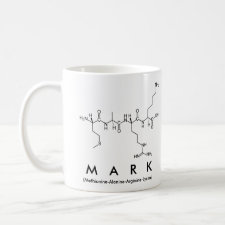
Authors: Tieppo A, Pate KM, Byrne ME
Article Title: In vitro controlled release of an anti-inflammatory from daily disposable therapeutic contact lenses under physiological ocular tear flow.
Publication date: 2012
Journal: European Journal of Pharmaceutics and Biopharmaceutics
Volume: 81
Issue: (1)
Page numbers: 170-177.
DOI: 10.1016/j.ejpb.2012.01.015
Alternative URL: http://www.sciencedirect.com/science/article/pii/S0939641112000367
Abstract: Novel molecularly imprinted, therapeutic contact lenses capable of controlled release of the non-steroidal anti-inflammatory (NSAID) diclofenac sodium were synthesized, exploiting ionic non-covalent interactions. Poly(HEMA-co-DEAEM-co-PEG200DMA) soft contact lenses were prepared (105 ± 5 μm thickness, diameter 15.0 ± 0.2 mm, base curve of 8.6 ± 0.2 mm) with different monomer to template ratios and dynamic release studies were conducted in artificial lacrimal solution using two different in vitro methods. Under infinite sink conditions, imprinted contact lenses demonstrated concentration dependent release kinetics. Under physiological flow rates, by increasing the M/T ratio from 1 to 10.5, the release rate decreased from 11.72 μg/h to 6.75 μg/h during the first 48 h. The release rate was more constant, moving toward zero-order release. To use these lenses as daily disposable lenses, the first 24 h of release was studied and found to be linear with a rate of 17.27, 11.99, and 8.74 μg/h for M/T ratios of 1, 3.5, and 10.5, respectively. Furthermore, the lenses prepared with a M/T ratio of 10.5 released diclofenac at a rate close to the maximum dose delivered by commercial eye drops, making them ideal for use as daily disposable lenses, and potentially leading to better patient benefit with substantially increased efficacy
Template and target information: non-steroidal anti-inflammatory, NSAID, diclofenac sodium
Author keywords: drug delivery, controlled release, molecular imprinting, contact lens, NSAID



Join the Society for Molecular Imprinting

New items RSS feed
Sign-up for e-mail updates:
Choose between receiving an occasional newsletter or more frequent e-mail alerts.
Click here to go to the sign-up page.
Is your name elemental or peptidic? Enter your name and find out by clicking either of the buttons below!
Other products you may like:
 MIPdatabase
MIPdatabase









